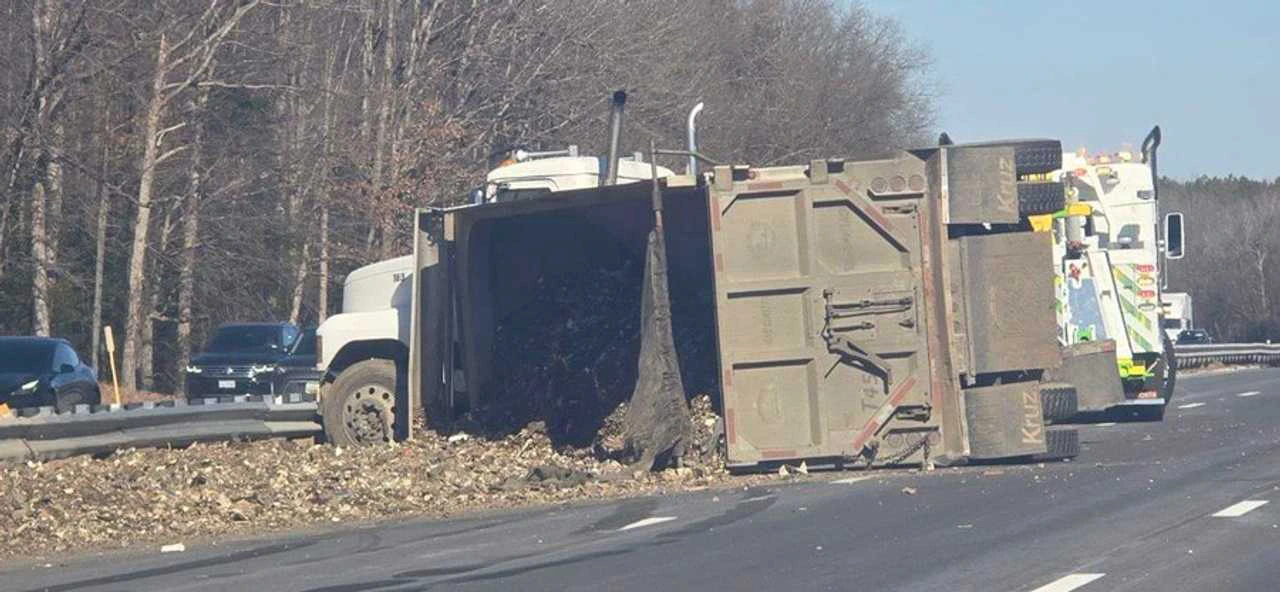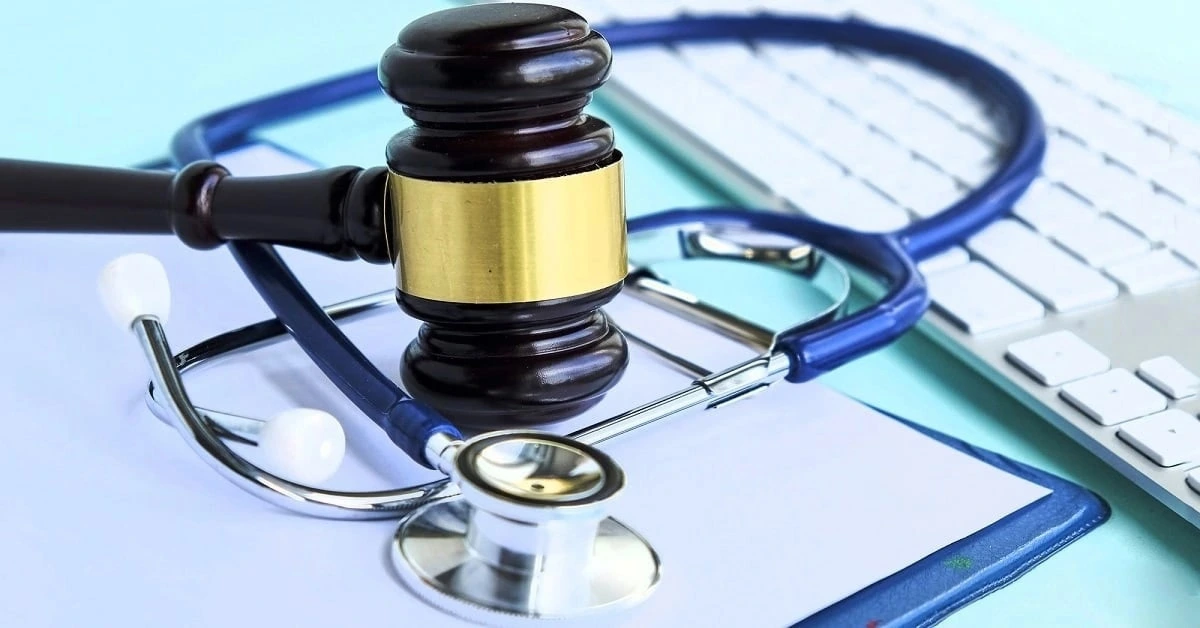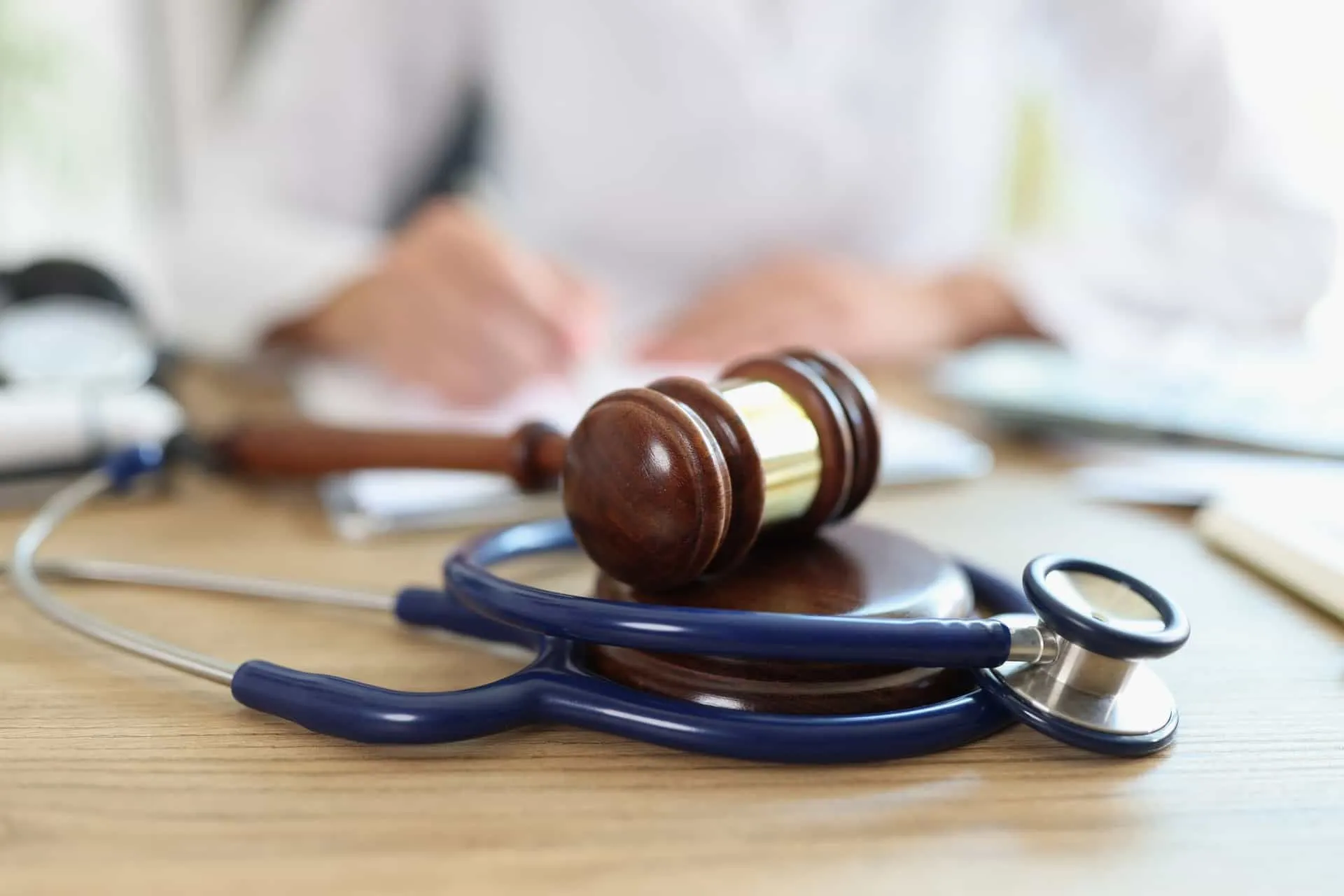A Virginia truck crash can leave you facing devastating injuries and overwhelming medical bills. Between emergency room visits, surgeries, and follow-up care, costs can reach tens or even hundreds of thousands of dollars within days. In the middle of physical recovery, one pressing question often arises: Who covers hospital bills after a Virginia truck crash?
The answer is not always straightforward. Virginia follows a fault-based insurance system, meaning the at-fault party is generally responsible for damages, including medical expenses. However, hospital bills are rarely paid immediately by the other driver’s insurance. In reality, several sources, your own health insurance, medical payments (MedPay) coverage, workers’ compensation, or a settlement from the at-fault truck driver’s insurer, may come into play at different stages.
This guide breaks down how medical costs are handled after a truck accident in Virginia, the laws that determine payment responsibility, and the steps you can take to ensure you are not left with unpaid bills or mounting debt.

Table of Contents
- Immediate Medical Costs: Who Pays First in Virginia?
- At-Fault Driver’s Insurance Coverage
- Your Health Insurance and MedPay Coverage
- Medical Liens and Letters of Protection
- Workers’ Compensation in Truck Crash Cases
- Federal Trucking Regulations and How They Affect Medical Bill Recovery
- Why Legal Help Matters for Hospital Bill Coverage
- Final Thoughts: Protecting Yourself from Medical Debt After a Truck Crash
- FAQs: Hospital Bill Coverage After a Virginia Truck Crash
Immediate Medical Costs: Who Pays First in Virginia?
After a serious truck accident, medical treatment often begins before fault is even determined. Emergency responders transport injured victims to the hospital, where doctors may order surgery, imaging tests, and other urgent care. These services are billed immediately, so who gets the bill first?
In Virginia, your own health insurance or MedPay coverage is typically the first to step in. Even if another driver is clearly at fault, their insurance does not pay your bills as they are incurred. Instead, you receive treatment under your own coverage, and your insurer may later seek reimbursement through a process called subrogation once your case settles.
If you do not have health insurance, hospitals may bill you directly or work with your lawyer to place a medical lien on your eventual settlement. This lien guarantees payment once your case resolves, allowing you to continue receiving treatment without upfront payment.
It’s important to note that under Virginia law, you remain responsible for your hospital bills until they are paid, regardless of fault. That means if the at-fault truck driver’s insurance delays or disputes the claim, your accounts could go to collections unless alternative payment arrangements are made. Acting quickly to notify your health insurer, MedPay provider, and legal counsel can help protect your credit and prevent treatment interruptions.
At-Fault Driver’s Insurance Coverage
In Virginia, the at-fault truck driver or trucking company is legally responsible for covering medical costs through their liability insurance. However, this payment comes only after a settlement or court judgment, which can take months or even years.
Commercial trucks in Virginia are required to carry higher liability limits than passenger vehicles. Under federal regulations, trucking companies must maintain at least $750,000 in liability coverage, and often more if they transport hazardous materials. This can provide a larger pool of funds for injury claims, but insurers will still investigate and may dispute your medical expenses to minimize payout.
The process typically works as follows:
- You submit medical bills to your lawyer or directly to the insurance adjuster.
- The insurer evaluates whether the treatment is related to the crash and whether it was necessary.
- Approved costs are factored into the settlement amount, which is paid out after you sign a release of claims.
Because payment is delayed until the claim is resolved, most injured victims rely on health insurance, MedPay, or medical liens to manage immediate bills. The at-fault driver’s insurer will eventually reimburse these payers, but only once liability is fully established.
Your Health Insurance and MedPay Coverage
Your own health insurance is often the first and most reliable way to cover hospital bills after a truck accident in Virginia. Whether you have private insurance, Medicare, or Medicaid, your policy will typically pay for covered medical expenses as they arise. However, these benefits are not “free money.”
Most health insurers include a subrogation clause in their contracts. This means that if you later recover a settlement from the at-fault party, the insurer has the right to be reimbursed for the medical bills they paid on your behalf. Your lawyer can sometimes negotiate a lower repayment amount to maximize your take-home settlement.
In addition to health insurance, many Virginia drivers carry Medical Payments Coverage (MedPay) on their auto policies. MedPay is optional coverage that pays medical expenses up to your policy limit, regardless of who was at fault. Typical limits range from $2,000 to $10,000, but higher amounts are available. Unlike health insurance, MedPay generally does not require repayment after a settlement, making it a valuable first source of funds.
If you have both health insurance and MedPay, you can often use them together to reduce or eliminate out-of-pocket expenses while waiting for your claim to settle.
Medical Liens and Letters of Protection
If you do not have health insurance or the ability to pay medical bills upfront, some hospitals and doctors may agree to treat you under a medical lien or letter of protection.
A medical lien is a legal agreement that allows a healthcare provider to secure payment from your future settlement or verdict. This means they will provide treatment now and wait for your case to resolve before collecting payment. Once your claim is settled, your lawyer will pay the provider directly from the settlement funds.
A letter of protection is similar but is typically an agreement between your lawyer and the medical provider, assuring that the provider will be paid once the case concludes. This arrangement can give you access to necessary treatment without immediate out-of-pocket costs, but it also reduces your net settlement amount because the lien must be satisfied before you receive your portion.
While medical liens and letters of protection can help you get the care you need, they should be used carefully. Some providers charge higher rates under lien agreements, and these costs can significantly affect your final settlement value. An experienced truck accident attorney in Virginia can negotiate lien reductions to help you retain more of your compensation.

Workers’ Compensation in Truck Crash Cases
If you were injured in a truck accident while on the job, workers’ compensation might cover your hospital bills and related medical expenses. This applies whether you were driving a commercial vehicle, working as a delivery driver, or simply performing job duties at the time of the crash.
In Virginia, workers’ compensation generally covers:
- Emergency room visits and hospital stays
- Surgeries, rehabilitation, and follow-up care
- Prescription medications related to the injury
- Mileage reimbursement for medical travel
Workers’ compensation is a no-fault system, meaning you do not need to prove who caused the crash to receive benefits. However, accepting workers’ compensation does not necessarily prevent you from pursuing a separate personal injury claim against an at-fault third party, such as the truck driver or trucking company.
When both claims are possible, coordination is essential. Workers’ compensation may have a lien on your third-party recovery for medical expenses they have paid. Your attorney can work to minimize repayment obligations and ensure you do not forfeit potential compensation from either source.
Federal Trucking Regulations and How They Affect Medical Bill Recovery
The trucking industry is governed by strict federal regulations enforced by the Federal Motor Carrier Safety Administration (FMCSA). These rules cover driver qualifications, hours-of-service limits, vehicle maintenance, and mandatory insurance coverage.
When a truck crash occurs in Virginia, violations of these federal rules can directly impact liability and your ability to recover hospital bills. Examples include:
- A driver operating beyond legally permitted hours, leading to fatigue-related crashes
- A truck company failing to maintain brakes or tires to safety standards
- Inadequate cargo securement causing load shifts and loss of control
- Failure to carry the minimum required insurance for commercial carriers
Proving such violations strengthens your personal injury claim. It not only supports a finding of negligence but can also open the door to higher insurance coverage limits than in typical car accident cases. This is especially important if your medical bills are substantial, as commercial carriers often have policies with much higher limits than individual drivers.
Your attorney can request driver logs, inspection reports, and electronic logging device (ELD) data to identify violations. This evidence can help ensure you are fully compensated for both immediate hospital bills and long-term medical care needs.
Why Legal Help Matters for Hospital Bill Coverage
Hospital bills after a Virginia truck crash are rarely straightforward. Multiple insurance companies, overlapping state and federal laws, and the high medical costs typical of truck accident injuries create a situation where victims can easily be left with unpaid balances unless they know exactly how to navigate the system. This is where experienced legal representation becomes critical.
1. Coordinating Multiple Payers
In many truck crash cases, your hospital bills may be subject to claims from several sources , your health insurance, MedPay or Personal Injury Protection (PIP), the trucking company’s liability insurer, and possibly workers’ compensation (if you were on the job when injured). An attorney ensures these payers are coordinated in a way that minimizes delays and prevents you from paying out of pocket unnecessarily.
2. Protecting Against Medical Liens and Overbilling
Hospitals and treatment providers often file medical liens against a portion of your eventual settlement. Without negotiation, these liens can take a large percentage of your compensation. A lawyer can challenge excessive charges, negotiate reductions, and ensure lienholders are only paid for legitimate, necessary treatment.
3. Identifying All Liable Parties
Truck accident liability is often shared among multiple defendants , the driver, the trucking company, a freight broker, or a maintenance contractor. A lawyer’s investigation can uncover all responsible parties, increasing the available insurance coverage to pay medical expenses and other damages.
4. Avoiding Lowball Settlement Offers
Insurance companies may offer a quick settlement that covers only immediate hospital bills, ignoring long-term needs like rehabilitation, future surgeries, or lifetime care. Legal counsel ensures that any settlement demand includes both current and future medical costs, supported by expert testimony if needed.
5. Understanding Virginia’s Contributory Negligence Rule
Virginia’s strict contributory negligence law means if you are found even 1% at fault, you could lose your right to compensation entirely. An attorney can present evidence, gather witness testimony, and counter the insurer’s attempts to assign blame to you , protecting your right to have hospital bills covered.
6. Handling Complex Federal Regulations
Trucking companies and their insurers are bound by federal safety regulations. Violations, such as Hours of Service breaches or maintenance failures, can strengthen your claim and lead to higher payouts for medical expenses. Lawyers familiar with Federal Motor Carrier Safety Administration (FMCSA) rules can use these violations to your advantage.
7. Peace of Mind During Recovery
Dealing with debt collectors and hospital billing departments while recovering from serious injuries can be overwhelming. Having a lawyer means those calls go to your legal team, allowing you to focus on healing while they work to ensure your bills are covered in full.

Final Thoughts: Protecting Yourself from Medical Debt After a Truck Crash
Hospital bills after a truck crash in Virginia can easily reach tens or even hundreds of thousands of dollars, especially when surgeries, ICU stays, or long-term rehabilitation are required. While insurance is supposed to cover these costs, the reality is more complicated. Between multiple insurers, lienholders, and the possibility of disputed liability, victims can quickly become overwhelmed.
The key takeaway is this: do not assume your bills will automatically be paid in full. Understanding how Virginia fault laws, insurance policies, and federal trucking regulations work together is critical to securing fair compensation. Acting quickly, documenting every expense, and getting experienced legal representation can mean the difference between walking away debt-free or facing years of financial strain.
FAQs: Hospital Bill Coverage After a Virginia Truck Crash
1. Will the trucking company’s insurance automatically pay my hospital bills?
Not necessarily. Their insurer will typically only pay after fault is established and a settlement is reached. In the meantime, your health insurance, MedPay, or workers’ compensation may handle the initial payments.
2. What if I do not have health insurance?
You may still receive treatment through a hospital lien or a letter of protection from your attorney. These arrangements allow you to get necessary care while your injury claim is pending.
3. Can I recover future medical expenses in my settlement?
Yes. If your injuries require ongoing treatment, your lawyer can include projected costs for surgeries, rehabilitation, medication, and assistive devices in your settlement demand.
4. What if multiple parties are at fault?
Your lawyer can pursue claims against all liable parties, which may include the truck driver, the trucking company, a parts manufacturer, or even another driver. This can increase the total available insurance coverage for your medical bills.
5. How long will it take to get my bills paid?
It depends on the complexity of your case. Straightforward liability cases may settle in a few months, while disputes or high-value claims can take a year or more.
Latest Posts
Who Covers Hospital Bills After a Virginia Truck Crash?
A Virginia truck crash can leave you facing devastating injuries and overwhelming medical bills. Between emergency room visits, surgeries, and follow-up...
Who Covers Hospital Bills After a Virginia Truck Crash?
How Much Does a Car Accident Lawyer Cost in Virginia?
One of the first questions many accident victims ask is, "How much does a car accident lawyer cost in Virginia?" The answer matters, not just for your...
